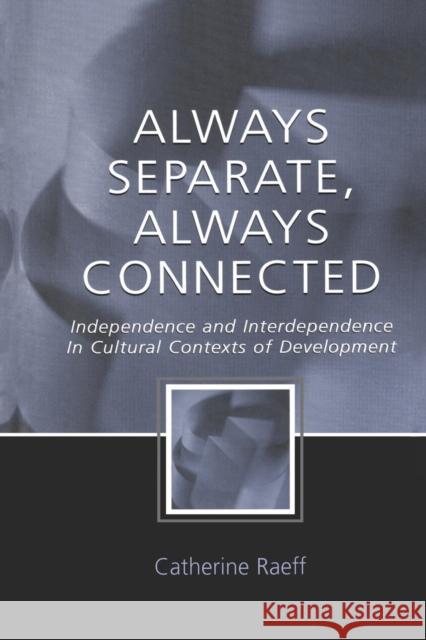Always Separate, Always Connected: Independence and Interdependence in Cultural Contexts of Development » książka
Always Separate, Always Connected: Independence and Interdependence in Cultural Contexts of Development
ISBN-13: 9781138012745 / Angielski / Miękka / 2019 / 312 str.
Always Separate, Always Connected: Independence and Interdependence in Cultural Contexts of Development
ISBN-13: 9781138012745 / Angielski / Miękka / 2019 / 312 str.
(netto: 247,17 VAT: 5%)
Najniższa cena z 30 dni: 246,78
ok. 22 dni roboczych.
Darmowa dostawa!
In recent years, there has been a proliferation of theoretical and empirical scholarship on how issues of human separateness, or independence, and issues of human connectedness, or interdependence, are played out in diverse cultural contexts. Despite agreement on the value of understanding culture and development in terms of independence and interdependence, many issues remain open for continued theoretical refinement and empirical analysis.
This book presents a fresh conceptualization which holds that independence and interdependence are multifaceted and inseparable dimensions of human functioning that may be defined and enacted differently in different cultures. Thus, the current approach accounts for the fundamental separateness and connectedness of all human beings in a way that is both universally applicable and culturally sensitive. Based on this conceptual approach, the focus of this text is to delineate how varied independence and interdependence issues are interrelated during development in culturally distinct ways. In doing so, the book offers a conceptual approach that moves cultural and developmental analyses beyond investigating whether some cultures value independence or interdependence more or less than others, to investigating how both independence and interdependence are construed and particularized during development around the world.
Always Separate, Always Connected: Independence and Interdependence in Cultural Contexts of Development will be of interest to a wide range of developmentalists in psychology, education, family studies, anthropology, and sociology. In addition, the book could serve advanced undergraduates, as well as graduate students in these varied disciplines. It may also be of interest to social welfare practitioners, such as clinical psychologists, guidance counselors, and social workers.











